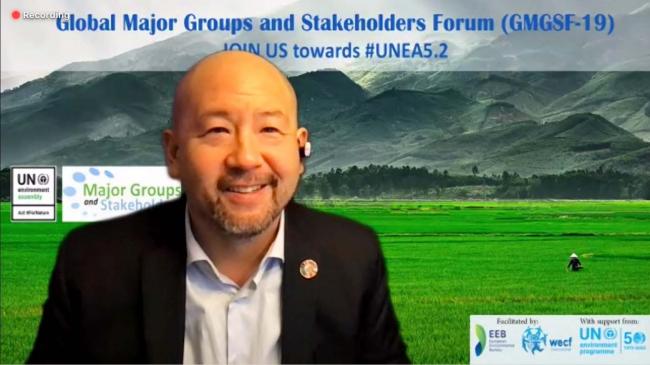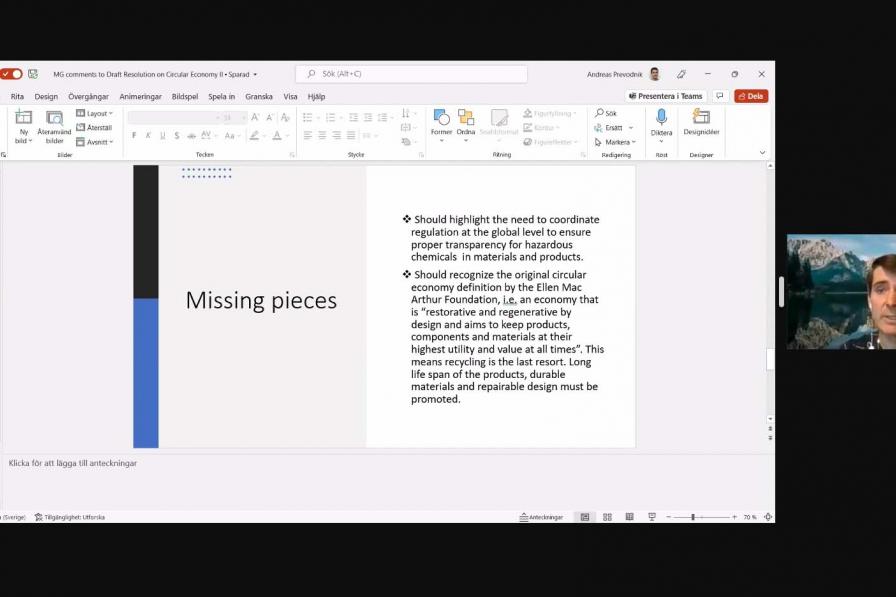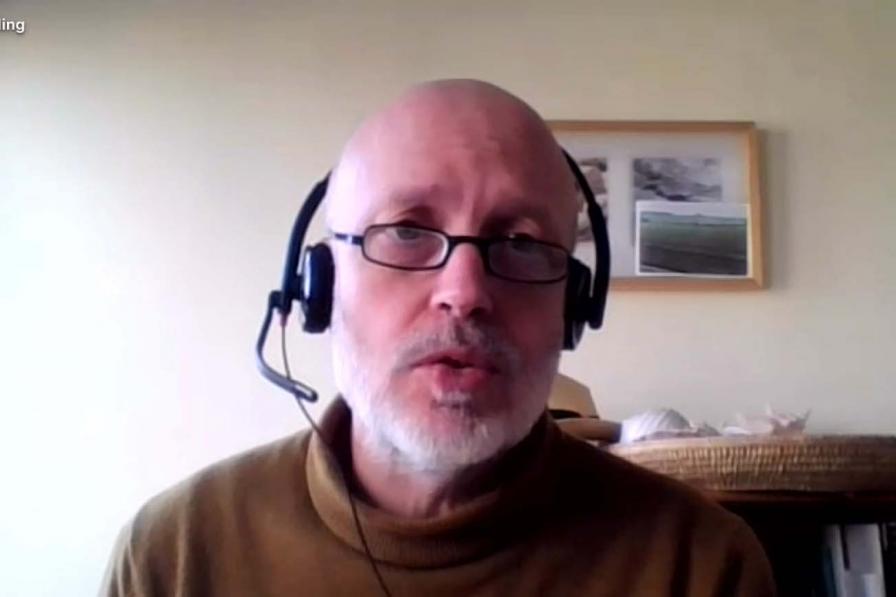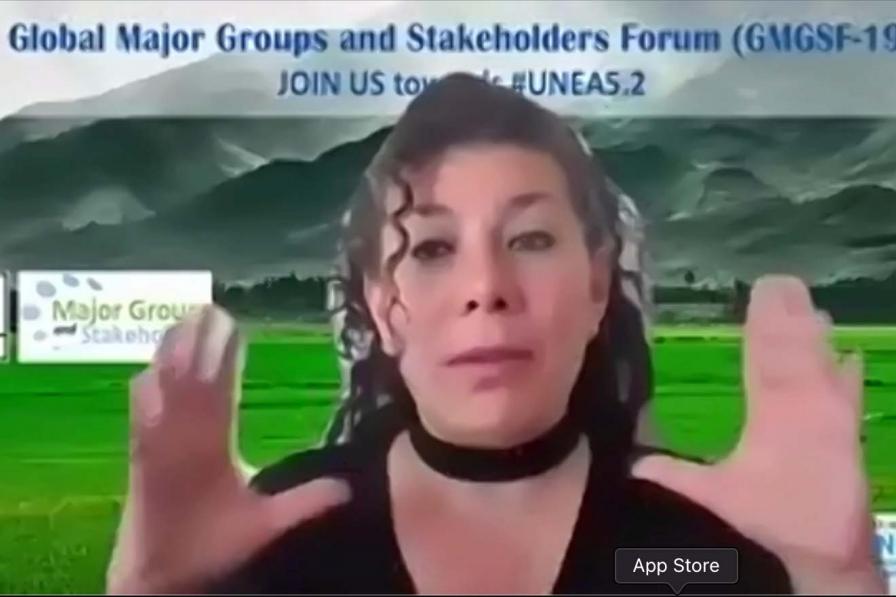GMGSF participants continued to review and consolidate inputs relating to the five resolution clusters to be negotiated at UNEA-5.2. During the first part of the meeting, participants convened in two break-out sessions to discuss the green recovery and international environmental governance clusters.
Thereafter, facilitators of the five clusters reported back on their progress in plenary.
Marine and plastic pollution: Co-Chair Christopher Chin, The Center for Oceanic Awareness, Research, and Education, reported on the previous day’s discussions noting the group had reached consensus on issues of concern to MGS to be included in the joint outcome document.
Green recovery and circular economy: Co-chair Bert De Wel, International Trade Union Confederation, noted no major conflicts had arisen during discussions, with all resolutions supported and groups mainly looking at how they could be strengthened. He highlighted the need for greater clarity on the various concepts used across the resolutions, for instance when referring to “stakeholders” and a “just transition.” Regarding circular economy and mineral management, he noted many supported a reference to global resource justice and democracy, as well as greater transparency in resource extraction, use, and decision-making. He also pointed to calls for more explicit reference to addressing biodiversity loss in all resolutions.
Chemicals and waste: Co-Chair Sarojeni Rengam highlighted the outcome of Tuesday’s discussions on the four resolutions under this cluster, noting the importance of mentioning the need to secure additional funding for chemicals management from industry in line with the polluter pays principle. Regarding the nitrogen management resolution, Rengam highlighted suggestions to ensure reference to industrial agriculture and pollution and to replace synthetic nitrogen fertilizers with agaricology practices. Rengam concluded by highlighting proposals on chemical aspects of the circular economy resolution, including aligning it with the omnibus resolution on the sound management of chemicals, and the need for a global cross sectoral, transparency standard for hazardous chemicals in materials and products.
International environmental governance and the political declaration on UNEP@50: Reporting on this cluster, Facilitator Leida Rijnhout highlighted broad consensus on the need to strengthen UNEP with a possible mandate to kickstart a process to develop a legally binding international instrument with clear principles, goals, and targets. Noting, however, that most recognized the difficulty of reaching consensus, she said noted calls to launch a coalition of the willing to pursue stronger environmental governance. Rijnhout also highlighted issues of concern for NGOs, such as ecocide, protecting environmental defenders, capacity building on environmental laws, and the contribution of Indigenous Peoples to sustainable management of natural resources.
Biodiversity and nature-based solutions: Signalling continued controversies around the use of the term “nature-based solutions,” the EU-sponsored resolution on this topic elicited lengthy discussions in plenary. Facilitating the discussion, Ingrid Rostad, Co-Chair, Major Groups Facilitating Committee, said despite significant efforts, consensus had not been reached on the matter. It was agreed that participants would have time to provide comments after the Plenary, with the co-chairs working towards re-drafting a response for consideration in the final plenary on Thursday that would emphasize common ground while also recognizing the divergent views expressed.
To receive free coverage of global environmental events delivered to your inbox, subscribe to the ENB Update newsletter.















